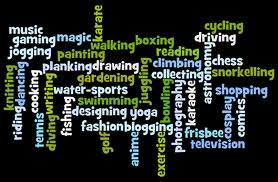 Start my job search now? Yes! Whether you will graduate next year or are an incoming student, it’s not too early to start developing your job-search skills. And note that I said “job-search skills,” not “job skills.”
Start my job search now? Yes! Whether you will graduate next year or are an incoming student, it’s not too early to start developing your job-search skills. And note that I said “job-search skills,” not “job skills.”
“Job skills” include abilities necessary for a specific type of work (such as lab techniques, programming languages, art skills, knowledge of particular facts) as well as transferable “soft” skills (such as communication, collaboration, organizational skills).
“Job-search skills,” however, include knowing how to explore and find opportunities in the career field(s) of interest to you.
“Job-search skills” are not necessarily as challenging as they are time consuming. So, if you can start now, do! Devoting some time to developing competence in the following abilities will help you get ahead of the game (and make it easier to excel in these practices in the future). These suggestions for developing your job-search skills can also be rather fun!
Talk to People
Be Curious
Pursue Interests
Become an Expert Communicator
Be Amazed
Tell Stories
Send Fan Mail
Be a Sleuth
Get Experience
Start Now!
Start asking your friends, families, colleagues, fellow students, and other interesting people about what they do or want to do, why they want to do it, and how they do it (or plan to do it). Some students set an agenda for themselves to invite a different person to coffee (or iced tea in this heat!) once a week to ask that person about what he or she does. This is probably the quickest way to learn about interesting occupations, and it’s more fun than reading career websites’ definitions of what a zookeeper or consultant or marketer does. Added bonus? You not only learn about different employment options, but you meet people who might eventually be able to offer suggestions about job opportunities in their field.
Look below the surface to learn more about how your favorite movie was produced, why the iPhone is successful, where the designers found the materials for the newest athletic shoes, what drove the stock market up (or down) last week, who wrote the lyrics to that silly ad you love, who built your favorite app, what inspired the Wimbledon champion, why your favorite restaurant no longer exists, how a well-known company became what it is.
When something interests you, dig in! Read a book, find a blog or YouTube video, try it out yourself while on vacation, take an online course. Don’t put the interest on the shelf with everything else you might get to someday. Schedule some time to try it out now, and if you like it, keep doing it.
Practice! Whether spoken or written, develop your communication skills. Explain to your friends why you thought your favorite movie was better than their favorite movie. Argue your viewpoint regarding a world event. If your first language is not English, set a goal of speaking English with native English-speakers every day. (It will eventually make interviewing much easier!) Stay in touch with friends from past schools, your former teachers and coaches, current classmates.
Find inspiration through videos and articles about the cool things that people have done. Use your curiosity skills to dig in deeper and figure out how they found and developed their passions and how they overcame obstacles. Pay attention to the stories that make you say “Wow!”
Tell your story! As you read about what others have done, start practicing your own stories. Fill them with examples from your life and your hometown, about the people you know, about the things you love. You know what you do well, so include your “transferable skills” in your story. Are you particularly creative? Funny? Independent? Focused? Detail oriented? Athletic? Compassionate? Well-liked? Adventurous? Keep your story unique and interesting. Practice on friends and relatives who ask you what you’re doing and why. And include these skills and interests in your online profiles (but be selective about what is appropriately professional and potentially helpful in your future job searches).
When you read or hear about someone’s impressive accomplishment, let that person know that you’re a fan. A short email or text message or letter saying that what that person did was interesting, incredible, and/or inspiring is an easy, fast way to connect and convey your interests as well.
As you read stories, talk to people, and probe behind the scenes, you’ll be learning about what made someone successful in whatever it is that has caught your attention. Note which skills contributed to that person’s success. Was that person lucky? Focused? Passionate? How does that person’s industry work? If you want to succeed in the same area, which skills and experiences would help you?
You’ll eventually need examples that prove that you can do whatever it is that you want to do, so start simply. Start now. Volunteer for a day. Help a friend with her or his project. Ask a friend of your parents if you can shadow that person at work for a day. Find a part-time job during the summer. While at work, ask if you can take on additional projects if something catches your attention. Do your own research. Travel. Be involved in community and campus activities.
Sometimes students contact me even before they start at Penn, and they want to know what they should start doing in order to get the job they want after graduation. Some students start focusing on their job search during their senior year. Whether you are an incoming or returning student, start now and use the time you have wisely. Identify how you sometimes waste your time and take back some of that time and use it to start developing these job-search skills. Whether you set aside an hour per week or several hours per day to learn about interesting occupations, meet people to hear about their work, and start telling your story, you’ll realize a return on your investment. So start investing now!












I don’t get the fanmail part… but everything else is definitely good advice.
Good question! When you encounter someone’s impressive work-related accomplishment, you might want to let them know. Perhaps you’ve read an article or heard a speaker talk about a new company, an innovative strategy, a unique professional experience? A brief congratulatory note (focused on them, not you) can make a positive impression that will benefit you in the future.